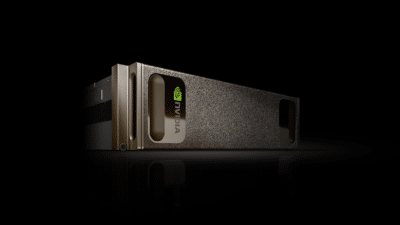Paige.AI Ramps Up Cancer Pathology Research Using NVIDIA Supercomputer
An accurate diagnosis is key to treating cancer — a disease that kills 600,000 people a year in the U.S. alone — and AI can help.
Common forms of the disease, like breast, lung and prostate cancer, can have good recovery rates when diagnosed early. But diagnosing the tumor, the work of pathologists, can be a very manual, challenging and time-consuming process.
Pathologists traditionally interpret dozens of slides per cancer case, searching for clues pointing to a cancer diagnosis. For example, there can be more than 60 slides for a single breast cancer case and, out of those, only a handful may contain important findings.
AI can help pathologists become more productive by accelerating and enhancing their workflow as they examine massive amounts of data. It gives the pathologists the tools to analyze images, provide insight based on previous cases and diagnose faster by pinpointing anomalies.
Paige.AI is applying AI to pathology to increase diagnostic accuracy and deliver better patient outcomes, starting with prostate and breast cancer. Earlier this year, Paige.AI was granted “Breakthrough Designation” by the U.S. Food and Drug Administration, the first such designation for AI in cancer diagnosis.
The FDA grants the designation for technologies that have the potential to provide for more effective diagnosis or treatment for life-threatening or irreversibly debilitating diseases, where timely availability is in the best interest of patients.
To find breakthroughs in cancer diagnosis, Paige.AI will access millions of pathology slides, providing the volume of data necessary to train and develop cutting-edge AI algorithms.

To make sense of all this data, Paige.AI uses an AI supercomputer made up of 10 interconnected NVIDIA DGX-1 systems. The supercomputer has the enormous computing power of over 10 petaflops necessary to develop a clinical-grade model for pathology and, for the first time, bridge the gap from research to a clinical setting that benefits future patients.
One example of how NVIDIA’s technology is already being used is a recent study by Paige.AI that used seven NVIDIA DGX-1 systems to train neural networks on a new dataset to detect prostate cancer. The dataset consisted of 12,160 slides, two orders of magnitude larger than previous datasets in pathology. The researchers achieved near perfect accuracy on a test set consisting of 1,824 real-world slides without any manual image-annotation.
By minimizing the time pathologists spend processing data, AI can help them focus their time on analyzing it. This is especially critical given the short supply of pathologists.
According to The Lancet medical journal, there is a single pathologist for every million people in sub-Saharan Africa and one for every 130,000 people in China. In the United States, there is one for rohly every 20,000 people, however, studies predict that number will shrink to one for about every 30,000 people by 2030.
AI gives a big boost to computational pathology by enabling quantitative analysis of the study of structures seen under a microscope and cell biology. This advancement is made possible by combining novel image analysis, computer vision and machine learning techniques.
“With the help of NVIDIA technology, Paige.AI is able to train deep neural networks from hundreds of thousands of gigapixel images of whole slides. The result is clinical-grade artificial intelligence for pathology,” said Dr. Thomas Fuchs, co-founder and chief scientific officer at Paige.AI. “Our vision is to help pathologists improve the efficiency of their work, for researchers to generate new insights, and clinicians to improve patient care.”
Feature image credit: Dr. Cecil Fox, National Cancer Institute, via Wikimedia Commons.
The post Paige.AI Ramps Up Cancer Pathology Research Using NVIDIA Supercomputer appeared first on The Official NVIDIA Blog.